Animals
-
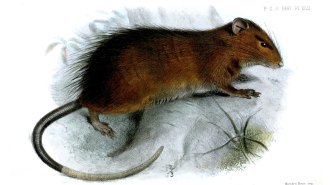 Genetics
GeneticsAn extinct rat shows CRISPR’s limits for resurrecting species
Scientists recovered most of the Christmas Island rat’s genome. But the missing genes signal a problem for using gene editing to de-extinct species.
By Anna Gibbs -
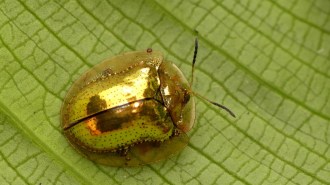 Animals
AnimalsMirror beetles’ shiny bodies may not act as camouflage after all
Hundreds of handmade clay nubbins test the notion that a beetle’s metallic high gloss could confound predators. Birds pecked the lovely idea to death.
By Susan Milius -
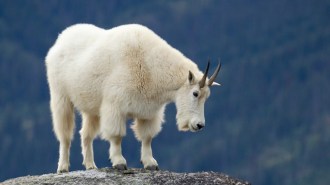 Animals
AnimalsCulturally prized mountain goats may be vanishing from Indigenous land in Canada
As fewer mountain goats are spotted along British Columbia’s central coast, First Nations people team up with biologists to assess the population.
-
 Paleontology
PaleontologyScientists are arguing over the identity of a fossilized 10-armed creature
An ancient cephalopod fossil may be the oldest ancestor of octopuses, but the interpretation hinges on the identification of one feature.
By Anna Gibbs -
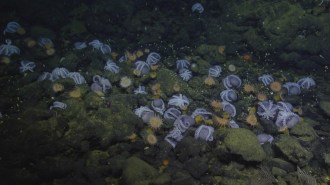 Oceans
OceansSome deep-sea octopuses aren’t the long-haul moms scientists thought they were
Off California’s coast, some octopuses lay eggs in the warmer water of geothermal springs in the “Octopus Garden,” speeding up their development.
-
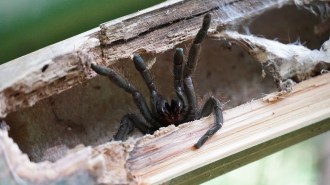 Animals
AnimalsThis newfound tarantula is the first known to make its home in bamboo
Bamboo stems provide the spider with ready-made burrows and nests, but the arachnid must rely on other animals or natural forces to gain entry.
By Becki Robins -
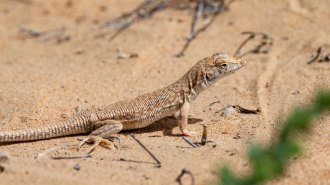 Animals
AnimalsHow lizards keep detachable tails from falling off
A hierarchical structure of micropillars and nanopores allows the tail to break away when necessary while preventing it from easily detaching.
By Anna Gibbs -
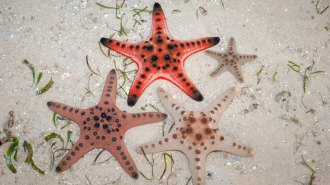 Animals
AnimalsA diamondlike structure gives some starfish skeletons their strength
Electron microscope images of knobby starfish’s calcite skeletons reveal an unexpected architecture that compensates for the mineral’s brittleness.
-
 Animals
AnimalsDeep-sea Arctic sponges feed on fossilized organisms to survive
Slow-moving sponges, living deep in the Arctic Ocean where no currents deliver food, scavenge a carpet of long-dead critters.
-
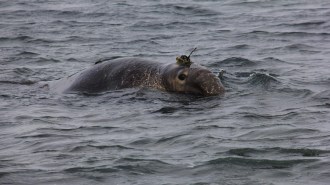 Animals
AnimalsMale elephant seals aim to get huge or die trying
Males will risk death to eat and grow as large as possible, since only the biggest males mate. But females aim for long-term survival.
By Jake Buehler -
 Animals
AnimalsGory footage confirms orca pods can kill adult blue whales
For the first time, three recorded events show that orcas do hunt and eat blue whales using coordinated attacks that have worked on other large whales.
By Anna Gibbs -
 Animals
AnimalsVinegar eels can synchronize swim
Swarming, swimming nematodes can move together like fish and also synchronize their wiggling — an ability rare in the animal kingdom.
By Nikk Ogasa